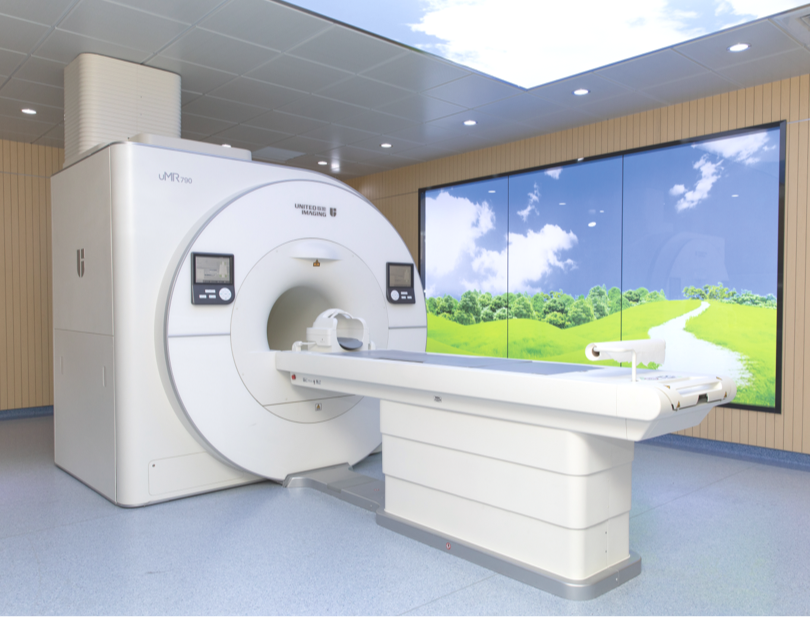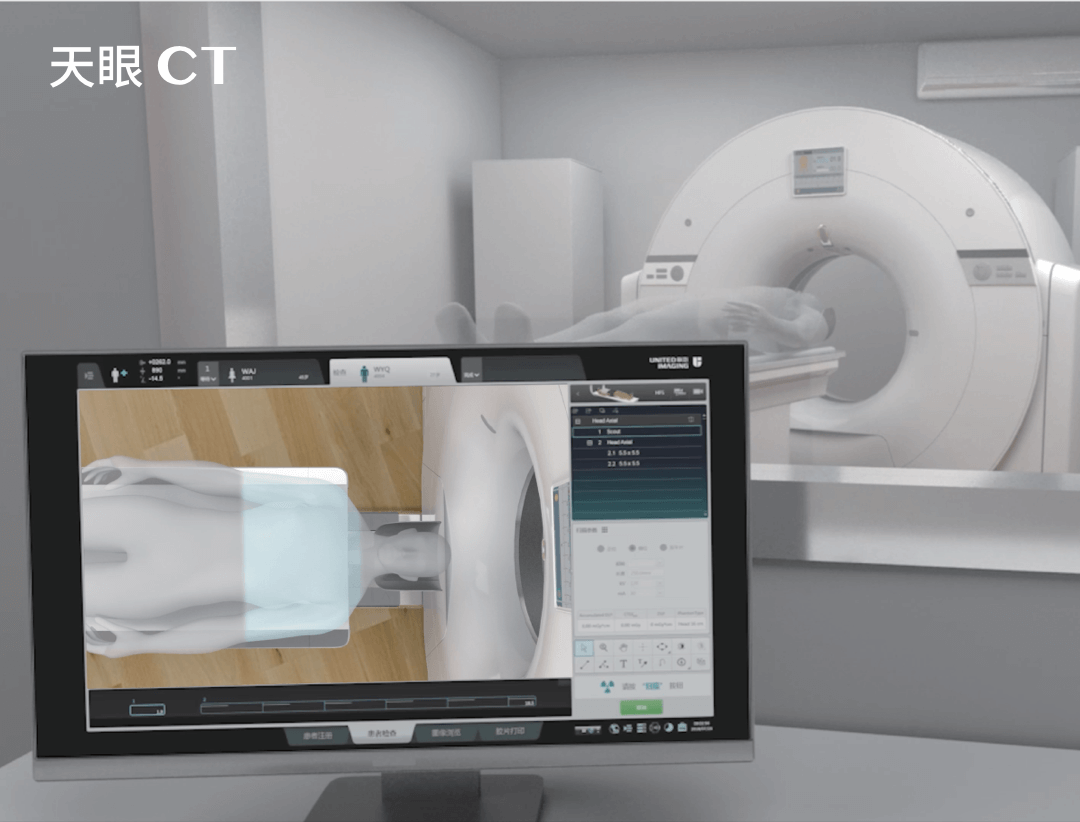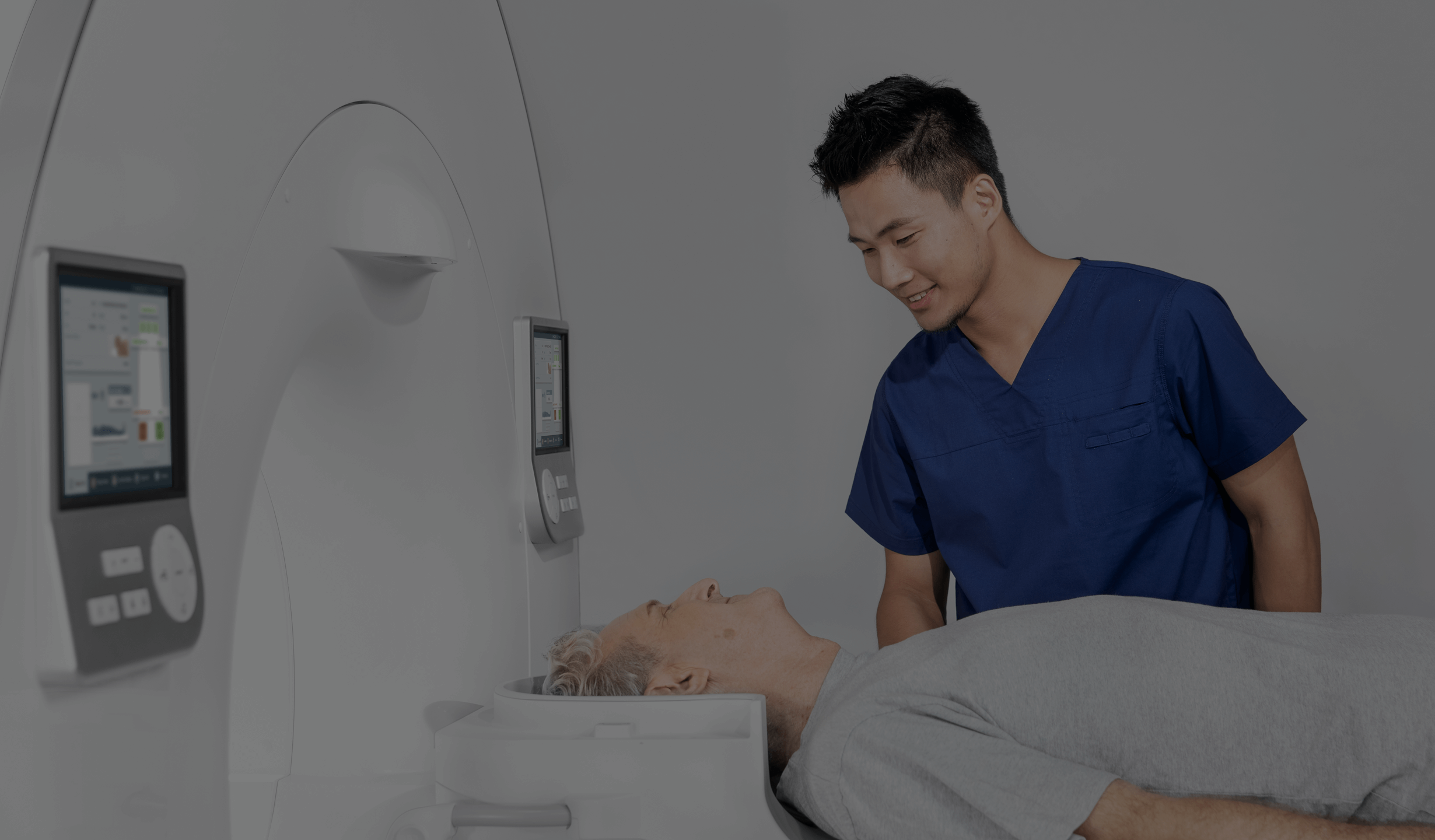MRI – how should I prepare for the scan?
Magnetic resonance imaging (MRI) is a non-invasive diagnostic procedure that allows doctors to look closely at the internal structures of the body. Although MRI is a painless procedure, it requires adequate preparation and the patient’s cooperation. Here are detailed guidelines to help you prepare for the scan and minimise the stress involved.
Indications for an MRI scan
Magnetic resonance imaging is useful for diagnosing a wide range of conditions. The precise images it produces help to identify problems related to the nervous system, musculoskeletal system, soft tissues and internal organs. Doctors often use MRI in cases where other imaging techniques, such as X-rays or CT scans, do not provide sufficient information, or where the patient is unable to undergo X-ray examinations for various reasons.
MRI referral
If a patient wishes to have an MRI scan without contrast in the private sector (without reimbursement from the National Health Fund), a referral is not necessary. However, it is always a good idea to consult a doctor and obtain such a referral before the scan, as the doctor’s referral will specify the scope of the scan and whether it should include contrast. The referral will also help to plan the scan accurately, which is important for getting the best possible diagnostic results.
Preparing for an MRI scan
Preparing for an MRI scan involves several important steps:
- Diet – it is not usually necessary to fast before an MRI scan, unless a contrast agent is being used. In this case, it is recommended that the patient refrain from eating for about 4 hours before the scan. Drinking water is allowed.
- Clothing and cosmetics – it is important that the patient is dressed comfortably, avoiding clothing with metal parts. Make-up, hairspray, perfume and antiperspirants containing metal may affect image quality and should also be avoided.
- Medical records – the patient should bring any previous imaging test results and other medical records that may be helpful in the diagnosis.
- Medication – if the patient is taking any medication regularly, he or she should continue to do so unless advised otherwise by the doctor.
What happens in the healthcare facility before an MRI scan?
Before the MRI scan, the medical staff will take a history of any metal in the patient’s body and any other potential contraindications to the scan, such as claustrophobia or implants. It is important that the patient informs the medical staff of any implants, electronic devices in the body and pregnancy. This is really a key requirement as the presence of metal in the body can interfere with the machine, which in turn can affect the accuracy of the results.
Communicating with staff during MRI scan
Communication with the radiology staff is essential for a safe and effective scan. During an MRI scan, the patient is placed inside an MR scanner, which resembles a long tunnel. Although the technicians are in a separate room, they are in constant contact with the patient via an intercom. The patient is given a pair of headphones or a headset through which he or she can hear the technicians’ instructions and tell them about his or her condition. In some cases, patients are given an alarm ball or button to use if it is necessary to interrupt the scan.
What does an MRI scan look like?
During the scan, the patient lies on a special table that slides into the scanner gantry. The scanner makes a lot of noise during the scan, so patients are usually given special ear muffs or ear plugs, but the noise is still audible, so it is better to be prepared. The gantry of many MRI scanners is quite narrow, which can also cause some discomfort.
It should be noted here that United Imaging Healthcare’s modern MRI scanners are designed to be as comfortable as possible for the patient; they offer more space and comfort, and the scan itself takes much less time than that conducted using a conventional machine. This has been achieved through advanced algorithms and artificial intelligence systems, making the whole examination less demanding for the patient.
What should I do during the MRI scan? How long does the scan take?
The patient must remain still throughout the procedure, which can take anywhere from a dozen to more than 60 minutes depending on the type of scan. During the scan, the patient should breathe calmly and evenly. Technicians will give instructions on when the patient can move between scan sequences.
Contraindications to magnetic resonance imaging
Contraindications to MRI include the presence of metal implants in the patient’s body, such as cardiac pacemakers, hearing implants, neurostimulators, metal foreign bodies as well as vascular clips or vascular prostheses. It is important to inform the medical staff of all implants and electronic devices in the body, as well as of pregnancy.
MRI and claustrophobia
Patients who suffer from claustrophobia may find it difficult to lie in the enclosed tunnel of an MRI scanner. In such cases, it is important for the patient to inform the staff of his or her phobia in advance. A decision may be made to use a sedative or to perform the scan in an open scanner, which is less restrictive.
How to stop an MRI scan
An MRI scan can be stopped at any time. If the patient feels very uncomfortable for any reason, he or she simply needs to tell the operators by pressing a special alarm ball or button, or by any other signal agreed with the staff in advance.
MRI scan – additional guidelines for the patient
Admittedly, an MRI scan is not the most comfortable procedure due to the length of the scan, the noise and the need to remain still, but it does not have to be very unpleasant. The following guidelines can help:
- Communicate any concerns – it is important to discuss any concerns or questions with the medical staff before the scan.
- Relax and be calm – it is a good idea to do breathing exercises or relaxation techniques before the scan to minimise anxiety.
- Reassess the need for sedatives – in some cases, the doctor may recommend sedatives, especially in cases of severe claustrophobia.
- Avoid stressors – it is a good idea to avoid stressful situations before the scan in order to stay calm and focused.
Preparing for an MRI scan involves both physical and mental aspects. Awareness of the procedure, communication with staff, and understanding the limitations and requirements of the examination are key to the effectiveness of the procedure and patient comfort. This knowledge can go a long way to reducing the fear and anxiety associated with an MRI scan. In addition, proper preparation on the part of the patient can contribute significantly to diagnostic accuracy and treatment effectiveness.
*ATTENTION! The information contained in this article is for informational purposes and is not a substitute for professional medical advice. Each case should be evaluated individually by a doctor. Consult with him or her before making any health decisions.



